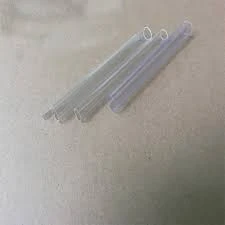Nov . 15, 2024 12:21 Back to list
industrial pipe fittings
The Importance of Industrial Pipe Fittings in Modern Infrastructure
Industrial pipe fittings play a pivotal role in the operation and efficiency of various systems across numerous industries. These essential components enable the diversion, control, and regulation of fluids and gases, thereby ensuring that processes run smoothly and safely. With the increasing complexity of modern infrastructure—ranging from water supply systems to chemical processing plants—understanding the significance of industrial pipe fittings becomes paramount.
Pipe fittings come in a variety of shapes and sizes, serving different functions based on the specific needs of the application. Common types of fittings include elbows, tees, couplings, reducers, and caps. Each of these has a unique role in the system. For instance, an elbow allows for a change in direction of flow, while a tee enables branching for multi-directional piping systems. Reducing fittings can help adjust pipe diameter, allowing for greater flexibility in design and installation.
Materials used for pipe fittings are equally varied, ranging from metal to plastic, depending on the operational requirements. Stainless steel and carbon steel are widely utilized for their strength and durability, particularly in high-pressure or high-temperature applications. On the other hand, materials like PVC and CPVC are preferred in systems that require corrosion resistance and are used in plumbing and chemical transport. The choice of material directly impacts the longevity, safety, and performance of the entire piping system.
industrial pipe fittings

In addition to their functional aspects, the design and manufacturing of industrial pipe fittings must adhere to strict industry standards and regulations
. Organizations such as the American Society for Testing and Materials (ASTM) and the American National Standards Institute (ANSI) provide guidelines that ensure the fittings can withstand the pressures and stresses they will encounter in operational environments. Compliance with these standards not only guarantees reliability but also enhances safety for the workers involved in the installation and operation of these systems.Another vital consideration in the use of industrial pipe fittings is the maintenance and inspection of the systems they comprise. Regular checks are necessary to avoid leaks, blockages, or failures that could lead to significant downtime or costly repairs. The importance of incorporating fittings that are easy to maintain cannot be overstated; this ensures not only the longevity of the piping system but also the safety of the personnel who work with these systems.
The evolution of technology has also influenced the design and functionality of industrial pipe fittings. Innovations such as 3D printing and advanced manufacturing techniques allow for more customized solutions tailored to specific applications. This adaptability is crucial in an era where industries are increasingly looking for efficient, sustainable, and cost-effective solutions.
In conclusion, industrial pipe fittings are fundamental components that ensure the integrity and efficiency of varied industrial systems. From their diverse materials and forms to stringent safety standards, these fittings are integral to the reliability of fluid and gas transport. As industries continue to evolve, the role of pipe fittings will undoubtedly become even more significant, paving the way for advancements in infrastructure and technology. Continuous innovation and adherence to safety standards will ensure that these components meet the demands of the future, keeping systems running smoothly and efficiently.
-
Durable PP Rigid Sheet: Lightweight, Chemical Resistant Solutions
NewsAug.21,2025
-
PVC Grey Sheet for Extraction: Chemical Resistant & Durable
NewsAug.19,2025
-
Durable PVC Pipe Fittings for Plumbing & Irrigation Needs
NewsAug.18,2025
-
HDPE Steel Belt Reinforced Spiral Corrugated Pipe | High Strength
NewsAug.17,2025
-
HDPE Pipe Fittings: Durable, Leak-Proof Solutions
NewsAug.16,2025
-
Premium CPVC Sheet: High-Temp & Chemical Resistant Solutions
NewsAug.15,2025

